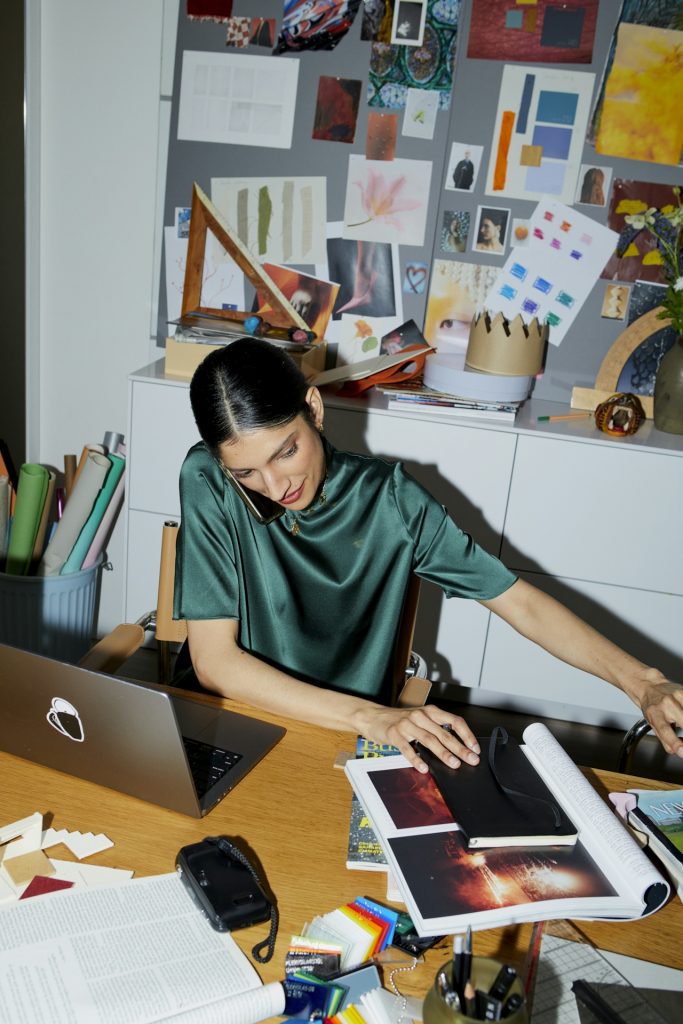Trigger warning: readers may be triggered by the recount of Indian Residential Schools. To access a 24-hour National Crisis Line, call: 1-866-925-4419. Community Assistance Program (CAP) can be accessed by citizens of the Anishinabek Nation: 1-800-663-1142.
June is National Indigenous History Month, a time to celebrate, honour, and learn about the cultures, traditions, experiences, and achievements of Indigenous peoples.
For this month, we’ve taken a look at five unstoppable forces across Canada. Although these entrepreneurs’ industries vary from one another, their commitment to their cultures, traditions, inclusivity, and desire to give back to their communities remains fundamental to each of their businesses. “I want to see a future where there is diversity and representation across all sectors, says Bobbie Racette, founder of Virtual Gurus. “We’ll never stop talking about it in our lifetimes because we have a long way to go, but I can see the momentum, and I am sure you can too.”
Shawn Adler
Chef & Restaurateur

Photo: elmnt fm.
Most see plants. Shawn Adler sees food. Anishinaabe Chef and Restaurateur Shawn Adler’s creativity when foraging ingredients for dishes dates back to his early childhood. “I grew up hearing stories from my mother. My mother went to residential school, and they were always hungry because they never got fed enough at residential school. So she talks about eating rose hips and gooseberries and currants and everything remotely edible from the bush,” said Adler in CBC Gem’s Forage. Forage follows Adler as he ventures into forests, lakes, and ravines during each Canadian season of the year. Throughout his journeys, viewers learn his rules of foraging, facts about edible plants and are educated on his experiences, community, and culture. As a chef, foraging has become a serious passion and a major part of creating dishes for his restaurants, The Flying Chestnut (Flesherton, ON) and the recently closed and beloved Pow Wow Café, located in Tkaronto’s Kensington Market since 2016. Even with the recent closure of the Pow Wow Café, Adler believes Toronto is a space for Indigenous people and communities to share their food, saying, “I think it’s up to us as Indigenous people to make our presence here and claim what’s rightfully ours.“
Jenn Harper
Founder of Cheekbone Beauty

Photo: Women of Influence.
For years, Jenn Harper wanted to do something that gave back to her Indigenous community. After having a dream, Harper woke up with a plan in which selling lip gloss could create scholarships for First Nations youth. That plan came to life in 2016 with Cheekbone Beauty Cosmetics Inc donating 10% of all profits to the First Nations Child and Family Caring Society of Canada (FNCFS). In 2018, the lip gloss dream became a reality as 100% of their ‘Lip Kit’ costs go towards FNCFS. “We’re so proud that we have donated over $200,000 to organizations that support Indigenous youth, started our own scholarship fund, and supported a variety of environmental causes,’ Harper told Entrepreneur. For Harper, business strategy has been, and always will be, based on empowering Indigenous youth and supporting the environment. If you’re looking for lipstick, bronzer, or mascara that also gives back, you can shop the Cheekbone Beauty collection at Sephora Canada. “I like to say that the world didn’t need another lipstick brand, but it did need a brand that really cares about the planet, and Indigenous people protect 80% of the world’s biodiversity. We’re the OGs of sustainability.” [100 Women of Influence in 2022, Entrepreneur]
Scott Wabano
Creative Director, Fashion Designer/Stylist of WVBVNO & Consultant and Social Media Content Creator

Photo: Bliss Thompson.
Whether you discovered Scott Wabano on your TikTok #fyp or at New York Fashion Week, you can immediately recognize that he possesses many talents. Scott Wabano is a Two-Spirit Iyiyuu Creative Director, Fashion Designer & Stylist, and Content Creator from the Cree Nation of Waskaganish. Growing up, Wabano struggled with his identity and coped by flipping through fashion magazines. However, the feelings of safety derived from the world of fashion came with doubts because of its lack of Indigenous representation. Today, Wabano is the Creative Director, Designer, and Stylist of WVBVNO, a genderless streetwear line which made its debut at 2023 New York Fashion Week.“The future is going to be Indigenous-led. It’s going to be two-spirit-led as well too”, said Wabano. From sharing Indigenous and 2SLGBTQ+/IndigiQueer experiences on social media to genderless streetwear with an Indigenous influence, Wabano is paving a pathway for future creatives and generations.
Teara Fraser
Founder and CEO of Iskwew Air

Photo: International Indigenous Speakers Bureau.
The word Iskwew means ‘woman’ in Cree. Iskwew Air was founded by Teara Fraser, the first Indigenous woman in Canada to create their own airline. “I chose the name as an act of reclamation. A reclamation of womanhood in a very male-dominated industry, reclamation of matriarchal leadership, and reclamation of language,” said Fraser. The story behind Iskwew Air dates back to when the 2010 Olympic Winter Games were hosted in Vancouver. When transportation barriers posed a threat to the Olympics, sharing the “authentic stories of this land and the Indigenous Peoples who live here,” Fraser wanted to help. In 2018, after selling her aerial surveying company, Fraser founded Iskwew Air, an airline based in British Columbia that offers chartered flights to remote Indigenous communities. Throughout the COVID-19 Pandemic, Iskwew Air became an essential service, supplying necessary goods to remote Indigenous communities. Like many heroes, Fraser doesn’t wear a cape. However, you can find Fraser in the air, reaching new heights in the 2021 DC Comics’ Graphic Novel WONDERFUL WOMEN OF THE WORLD, where they share her incredible story.
Bobbie Racette
CEO + Founder of The Virtual Gurus and askBetty

Photo: Virtual Gurus.
Calgary-based Cree-Métis Bobbie Racette is the Founder of The Virtual Gurus and askBetty. Both businesses provide virtual assistance and opportunity for busy professionals or, as Racette puts it, “for people who don’t necessarily fit the 9-5 mould, people like me”. It was during Alberta’s oil and gas layoffs that Racette pivoted to freelance and virtual assistance work, that led to the creation of Virtual Gurus. Racette quickly discovered a lack of job security, a high churn rate, and poor pay amongst talent agencies, pushing her to come up with a much-needed solution. Despite Virtual Gurus being the first Indigenous-owned business to raise venture capital, hurdles were encountered. When looking at the 170 investors who said ‘no,’ Racette found that 90% were white males. “Either I wasn’t getting the message out clearly, or they didn’t believe in me. I hate to say the latter was the most likely reason, but whether it was my being Indigenous or a woman or someone who is a part of the LGBTQ community, I will never really truly know,” said Racette. Racette shares that connecting and becoming further involved with Indigenous founders, support groups, and investors helped her through this experience. Championing opportunities for LGBTQ2+ and Indigenous communities is fundamental for Virtual Gurus and for Racette, as she says, “My challenge to all businesses is to set and meet targets for hiring Indigenous talent. Just imagine the impact if everyone did this.”







